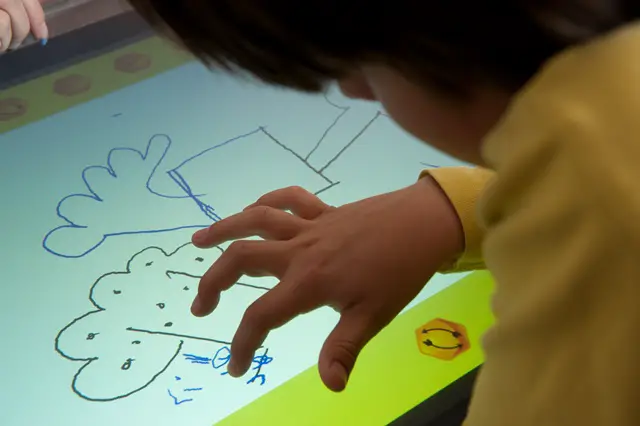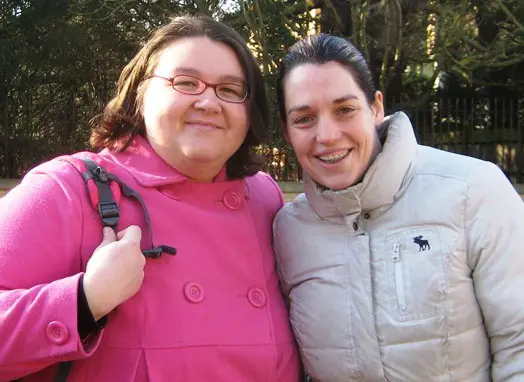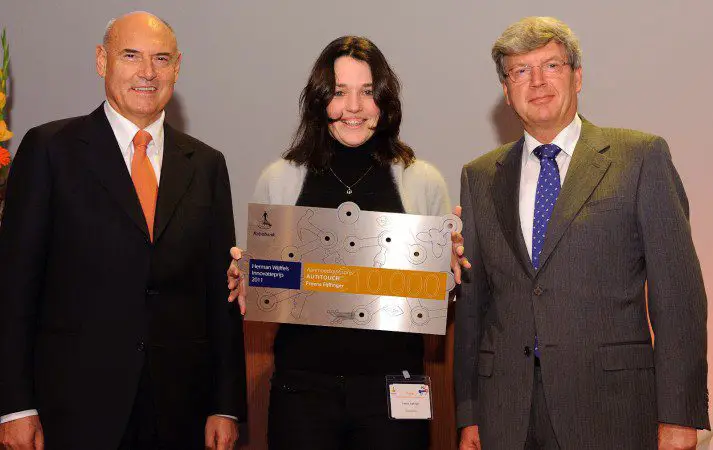
The app that could change the way autism is diagnosed
Disability Horizons is very excited to publish a new article from Adelina Chalmers. You may remember her last, very popular, article on employment? Adelina returns today to look at Autism and a new way of carrying out diagnosis.
What would you do if it took 7 years to get a diagnosis for your health problem? Would you feel frustrated, angry, depressed? Would you start a complaint or a petition? Probably you wouldn’t even bother doing anything because the system you are trying to change is far too big. But, there is someone who did do something about her frustration towards a slow autism diagnosis.
In January 2012 I met via Twitter a fantastic young woman called Freena Eijffinger from Holland who developed an app to help identify autism in 1 hour rather than 7 years!
Freena was really frustrated it took doctors in Holland 7 years to diagnose her brother’s autism – being an innovative and entrepreneurial woman, she got off her back side and decided to do something about it! She didn’t try to change the health system in Holland, instead Freena used her skills (programming computers) to solve a frustration felt by her whole family: identifying autism!
She realised it was difficult for doctors to identify her brother’s autism for two key reasons:
1. every time he was tested he kept copying other people’s behaviour so he appeared he was fine; and
2. for every different test he was seeing a new doctor, so the pattern of “copied” behaviour went unnoticed.
She decided to take a year off from her job and try to do something about this. She soon got a SBIR (Small Business Innovation and Research) grant from TNO (Netherlands Organisation for Applied Scientific Research) who then put her in touch with an autism professor at Free University of Amsterdam. In partnership, they carried out research and identified what sort of app to build. It goes to show, if you have initiative and commitment what you can achieve in just a few months!
They developed 4 apps to help identify autism which they tested on 300 children:
• one app measures TOM (Theory of Mind) and encompasses stories with questions and answers. Through this they measure reaction time, motor skills, motion; whether the answer is right or wrong and if a child can view things from someone else’s perspective (a key issue for people with autism).
• one app measures the participant’s ability to feel emotions, their response to pictures and questions. Through this they measure reaction time, whether the answer is right or wrong and why.
• one app measures perception bias by showing pictures with questions. Through this they measure reaction time and the way a child can empathize with another person.
• one app measures collaboration skills, through a specific protocol of collaborative drawing.
All of these tests help identify any signs of autism, removing the participant’s temptation to copy others’ behaviour or behave differently in front of a doctor, because they are interacting with a computer programme, not with a doctor…
When I met Freena, she was in Cambridge at a seminar with Simon Baron-Cohen (who is well known for developing the theory that autism is an extreme form of the “male brain”). He was particularly impressed that her team tested this new app with so many children (over 300), as usually not many parents agree to have their children part of autism tests.
How does this test help identify autism, comparing to the other tests?
This test is a tool which can help identify in only 1 hour if someone is more likely to have autism than someone who may not! This is a huge step forward in the diagnosis process, keeping in mind it took doctors 7 years to get a diagnostic for Freena’s brother, because getting the first few symptoms right is often the hardest job!
When taking the test, the doctor can observe the patient’s reactions and behaviour towards the various situations the test poses. The computer records all of the answers, so the doctor is not distracted by writing down answers to questions, like in the regular autism tests.
They get the results immediately as the programme gives an instant report when the tests are finished. This means it is quicker to share or make statistics out of the results. There is no need to get a computer system upgrade (so no extra expense on the health system), as the results come in a PDF document.
At present, this app is going through a validation process with the Dutch Government. If it gets validated and introduced as part of the diagnosis process of autism, it will not replace current tests, but it will help guide the path a doctor takes to establish an autism diagnosis.
At the moment there is no sole test which tests autism-related characteristics; this could lead to establishing a standardised test for initial stages of identifying autism.
For this app, Freena and her team won two innovation prizes at the Rabobank Herman Wijffels Innovation Awards, in the Netherlands. Out of 470 applicants, she was the only female in the top 10 and won two out of the five prizes up for grabs, worth €15,000. I look forward to May 2012 when we find out if the Dutch Government validates this new app for mainstream use in the Dutch health system and perhaps later in the whole world!
By Adelina Chalmers
Don’t forget to read more of our Technology stories and share your thoughts on this article by joining in the discussions on Twitter and Facebook.


…surely “the way a child can empathise with another person” is the measure of the third test listed?
Let us hope that this test is understood by doctors and not misunderstood, like so many are and do.
Subtle autism can be such a disability, inhibiting fuller enjoyment of life and so very distressing for all, especially when ‘unhelped’ or ‘unrecognised’ for many years, even into adulthood. It can be a strength also! A superpower to be understood and utilised!
Dear Ian,
The people who will work with our applications will be professionally trained to do so. People can only do our training (and use our product) when they are licensed to diagnose ASD. This, because our main goal is to increase quality of diagnostics. Unfortunately i cant tell you if our tests are valid, cause the validation trial will be finished end of this month. So it might not work, but we hope it does and since the first results came back positive, we are so as well 🙂
Best wishes Freena
ps. if you have any more questions please email me: freena@autitouch.com
Amazing – that Dr’s hadnt come up with this on their own – with all the money that is raised for Autism – it takes a mom computer wiz to figure this out! That is shameful for the Autism medical community if you ask me – wth are they doing with all the money they get? Paying themselves?